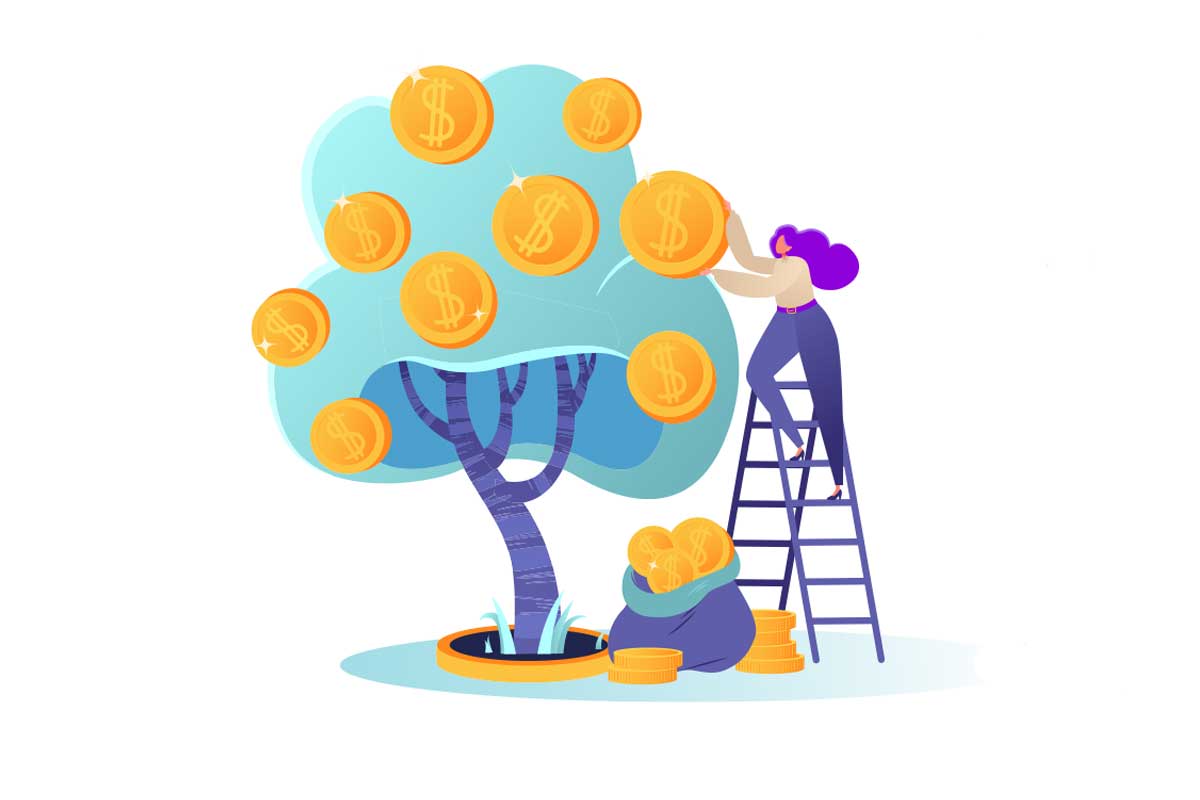Learning how to manage and keep finances safe can be a challenge filled with trial and error. With the changing economy, ups and downs in the market, and the occasional unforeseen circumstance, it can be difficult to remain unscathed.
Fortunately, there are several actions that can both prepare and protect you from financial loss.
Build an emergency fund
The first order of business should be developing and maintaining an emergency fund.
Financial advisers recommend setting money aside — in a protected fund — to use in case of an emergency.
“This would typically be enough to cover at least six months’ worth of expenses,” says Jennifer Myers, president of SageVest Wealth Management in McLean.
When possible, these reserve funds should be in a form that holds its value, Myers adds, such as cash, a money market fund, or a certificate of deposit.
“Say you have six months’ worth of savings in stock and the market goes down,” Myers explains. “When you have an emergency, then you’re down to under five months.”
While an emergency fund is ideal for all, it is especially important for those who have employment vulnerability concerns or work in an industry that could be subject to cutbacks.
Be aware of spending
After securing an emergency fund, a subsequent step should be tracking where your money is actually going.
And while some may associate this with creating a budget, that method isn’t always the most beneficial.
“Budgets are kind of a funny thing in that most people don’t actually have a true knowledge of where they spend their money,” says Myers. “And nine times out of 10, I’ve seen that most people underestimate their budget.”
Instead, do a deep dive on spending habits over the course of a month or two. Look at bank records and credit card statements, and break down spending into categories such as food, coffee, gas, and entertainment, among others.
“It’s important for people to look at their spending so they can see the areas where they maybe need to pull back,” says Myers. “A lot of the time, the first thing people think of is the cable bill.
And yes, maybe you could reduce that, but that’s typically not the problem-solver.”
In many cases, it’s nonrecurring or atypical expenditures that truly impact budgets, like special anniversary trips, birth-day gifts, new tires for a car, or a new air conditioner.
“It could even be something as simple as clothing or home accessories,” says Myers. “The things that don’t always happen every month are the things that often fall to the wayside.”
Eating out, meanwhile, is an-other prime factor to take into consideration.
“Everyone always thinks about the grocery bill, but they don’t always think about how much they are spending eating out here and there,” says Myers. “And that adds up.”

Determine wants versus needs
This step boils down to simplifying spending.
“Most of us have a million different subscriptions and things that, half of the time, we forget we’re even spending money on,” says Curtis Congdon, president of XML Financial Group in Falls Church.
Strive, then, to dismiss the more frivolous expenditures and instead focus only on the important things. That will help free up money for essential items.
After determining where your money is going, try breaking things down even further by categorizing spending into wants versus needs.
When an item falls into the want category, evaluate how the expense can be reduced or even eliminated.
“We had a client who chose to try this, and the way she did it was to say, ‘I’ll go out to eat with friends, but I’m not going to get takeout when I could easily make something at home,’” says Joseph Van Name, president of Advisors Financial Inc. in Vienna. “Basically, it’s still allowing yourself to have fun, but you’re not just out there wasting money.”
This practice benefits not only personal finances, but the economy as well, notes Myers.
“At this point, even if you have the financial means, you kind of have to consider if you want to be part of the problem or the solution,” Myers says. “Making a lot of unnecessary purchases helps perpetuate the current inflation issue. If some-thing can wait, and we do end up having a recession, you could always make the purchase then and help with the solution.”
For instance, when mulling over a kitchen renovation, consider putting the idea on the back burner for a year or two.
“It could potentially cost you less two years from now,” Myers says, “and you’ll be able to help stimulate the economy if there is a pullback.”
Increase free cash flow
Making the aforementioned adjustments can also help with increasing cash flow and eliminating debt.
“Something as simple as just reducing your monthly expenses can help increase your monthly savings,” says Congdon. “If you have the means and want to take a trip, that’s fine, but you wouldn’t … be buying a new vacation property under this step. … The whole idea here is to just steer clear of initiating any new expenses that would be recurring each month.”
Echoing that sentiment, Van Name notes, “If things are re-ally tight for you, this could be a helpful way to get you some extra cash to work with or save ahead for next month.”
Make good decisions
You’ve heard it before: It all comes down to mindset.
To be the kind of person who makes smart financial decisions, you need to envision yourself as such.
“Consider yourself to be someone who makes good financial choices versus someone who maybe has the latest and greatest of everything,” explains Congdon. “Keeping up that identity will get expensive. Being the most Instagram-worthy at all times is going to be hard to substantiate if the economy slows down.”
Save half of any pay raise
Another measure of financial protection is pocketing at least 50 percent of any pay bump.
Not able to do so? Don’t fret. Start small by advocating for yourself. Find a way to showcase value to an employer to obtain a higher wage.
“Invest in yourself, in your skills and your ability,” says Congdon. “Make yourself more marketable or more in-demand. If you put in the work, effort, and time it takes to command a higher wage, then you can start putting the focus back on some of these other key things.”
Evaluate commuting expenses
If a raise is not yet feasible, don’t lose hope. There may be other areas where savings are possible.
“Many people are still doing telework, which is very helpful with the rising gas prices,” says Myers. “But if you’re one of those who have gone back to the office, seeing if there is any potential for a hybrid approach to your position could be an option.”
Driving just two or three days a week instead of five, for example, can scale back expenses associated with commuting.
Conversely, if your company is transitioning back to a brick-and-mortar operation after two years of remote work, it will be important to modify habits to account for new expenses, Myers says.
Avoid emotional traps in investing
When it comes to investing, avoid panicking and selling low.
“Keep in mind that downturns are a natural phenomenon in the market,” Myers says. “People may be experiencing heightened anxiety levels around investing as it’s been quite some time since we’ve experienced a meaningful pullback, in fact 14 years since 2008. There were pullbacks in 2018 and 2020, but they were very short lived.”
If you have liquidity, now could be the time to buy.
“I’m a firm believer than it’s better to buy low,” Myers says. “People get nervous and think, ‘well I’ll stop investing for now,’ but this could be the perfect time to continue investing and putting money into the market.”
This story originally ran in our September issue. For more stories like this, subscribe to our monthly magazine.





